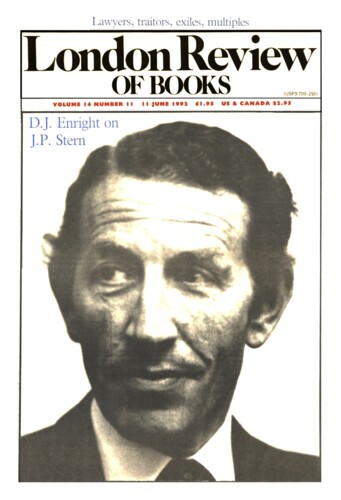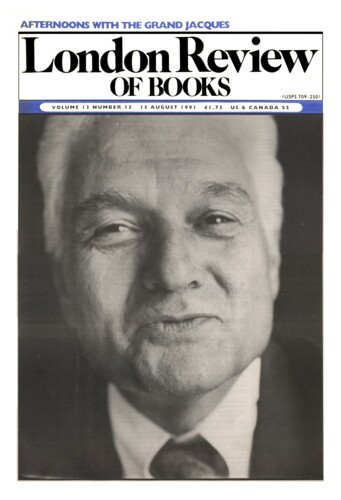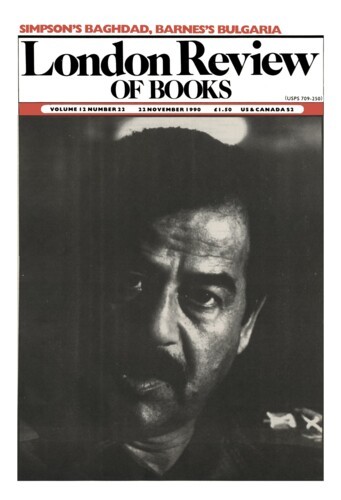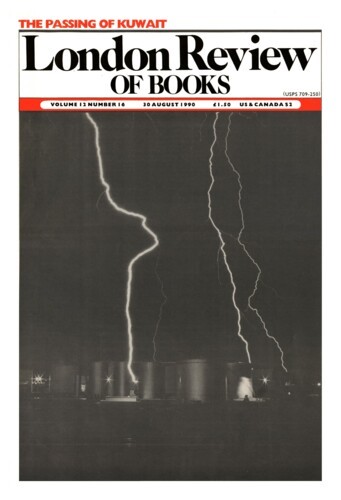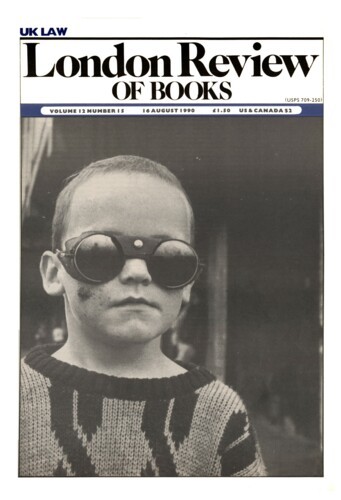Up the avenue
Peter Clarke, 11 June 1992
Don’t be put off by the title, since it’s only a laboured allusion to Cobbett’s Rural Rides, lacking the alliterative euphony of the original. What Edward Pearce of the Guardian offers is a record of his 19 days on the road during the General Election, visiting as many constituencies, each time in the company of a particular candidate, of varying party. There are glimpses of the circumstances of its composition at several points, including one gratuitous (I trust) advertisement for the delights of the Hark to Bounty Inn in Slaidburn, a fitting climax to the lyrical expedition across the Pennines from Richmond to Clitheroe. It’s nice to see that the author pulled in quite a lot of ‘countryside of the sort lucky not to have been stripped out and exported to Japan’. How different from his final slog from Birmingham to catch the count at Huntingdon, which evinces the comment that ‘a journey across west central and east central England by major road is best occupied reading proofs.’ So that’s how the book came into my hands within a week of polling day! If it’s more of a diary than a work of retrospective lucubration, it’s none the worse for that. This wasn’t the election for pundits to be wise after the event, given their failure to be wiser than the rest of us before it.
